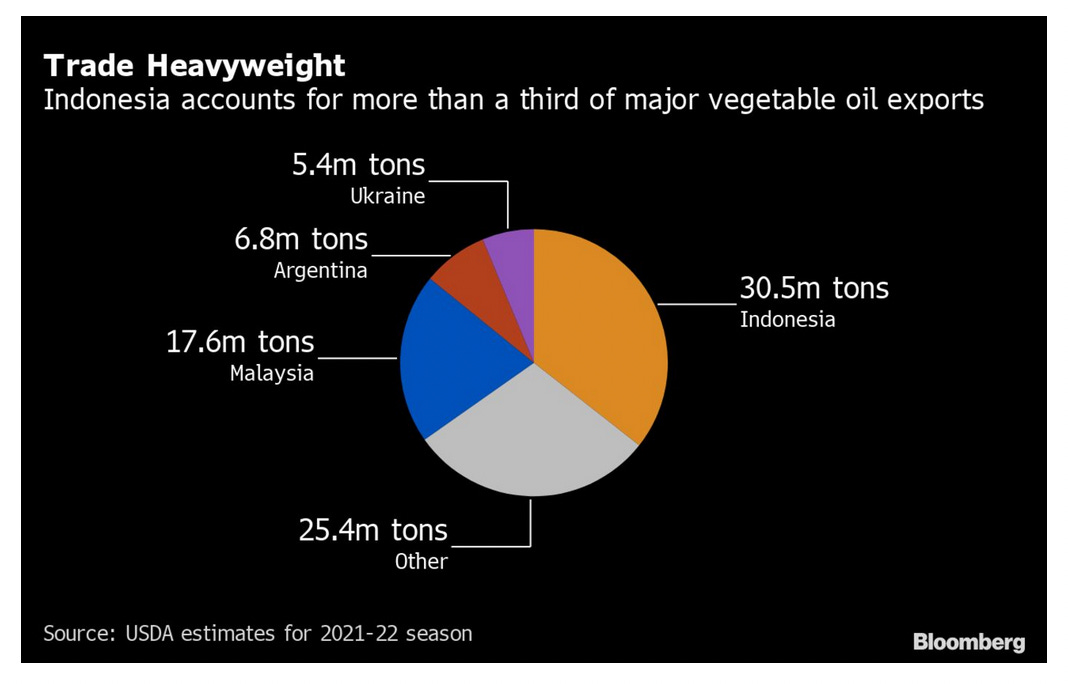The war in Ukraine is disrupting supplies of wheat, oilseeds and the fertilizer needed to grow them.
(Originaly published April 27 in “What in the World“) Food prices are now rising more rapidly than energy prices, according to economist and New York Times columnist Paul Krugman, as geopolitical instability unwinds the kind of globalization re-established after World War II. The World Bank is warning we may be in for the biggest commodity price shock since the 1970s.
Wheat isn’t the only reason the war in Ukraine is driving up global food price inflation. Ukraine is world’s largest producer of sunflower oil, and one of the six largest exporters of corn, chicken and honey.
The war has disrupted Ukraine’s production and transport of these commodities, sending cooking oil prices up as far away as India. Rising global prices for vegetable oil have prompted Indonesia to ban many exports of palm oil, an essential commodity not just for cooking but for industrial manufacturing. That move, combined with drought in Argentina, has in turn send prices for soybean oil to a record high.

The impact of the war is perhaps highest in countries that rely most on Russia and Ukraine for food, particularly Egypt and Turkey, which are highly dependent on food from Russia. But one of the countries most reliant on imported Ukrainian agriculture is China. The impact may be long-lasting, too. Russian forces are deliberately targeting Ukrainian agriculture, mining farmland. And Russia has now cut off supplies of natural gas to Bulgaria and Poland to retaliate against their support for Ukraine, which will restrict both countries’ production of fertilizer.
As Krugman observes, trade may not have kept the peace, but trade certainly seems to depend on peace.